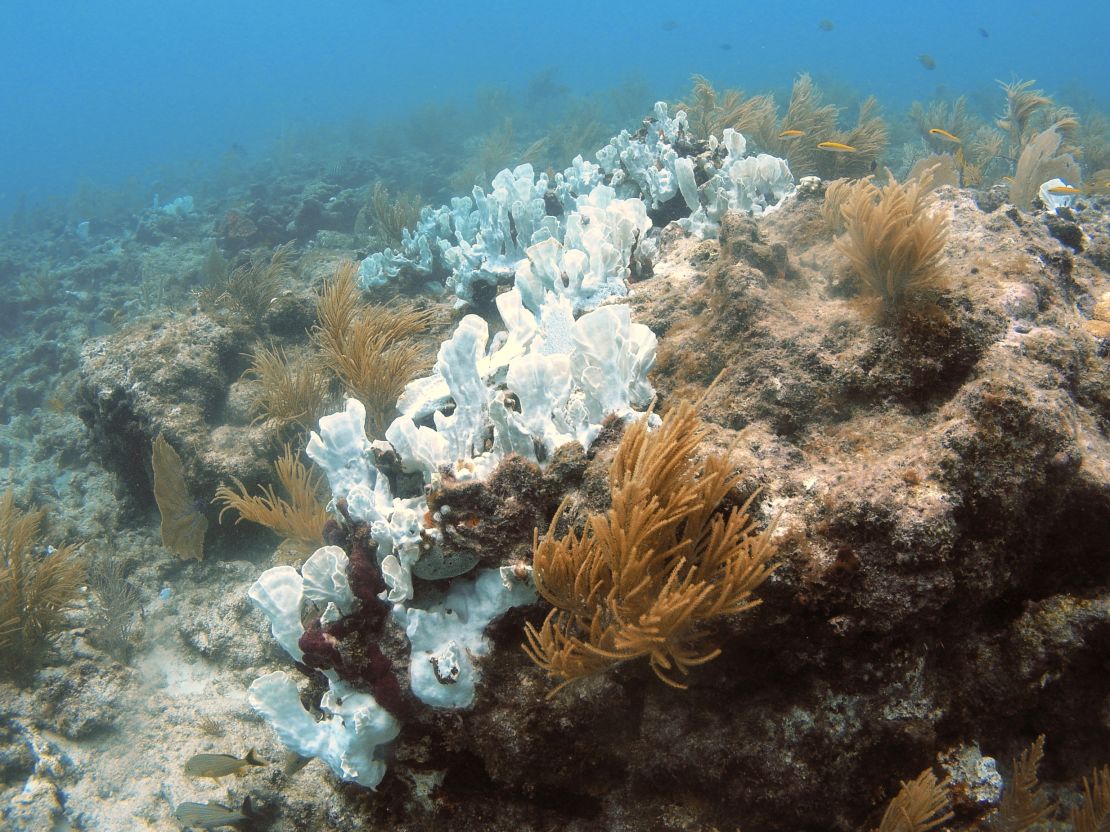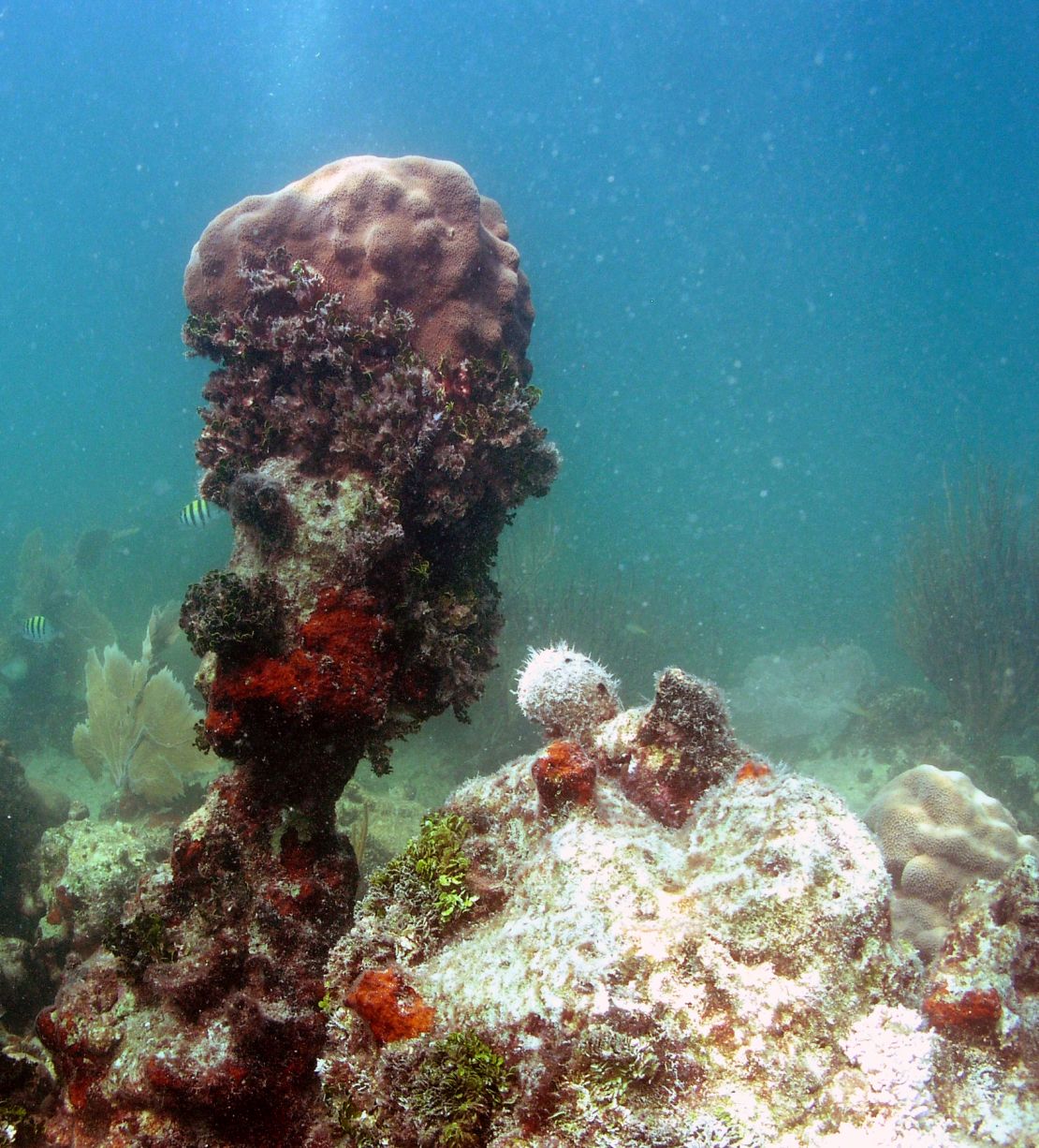Key West, Florida, has voted to ban certain sunscreens in an effort to protect coral reefs in its surrounding waters.
The city joins a growing list of places that have banned sunscreens containing the chemicals oxybenzone and octinoxate. The Pacific nation of Palau and the state of Hawaii both passed similar bans last year.
The two particular sunscreen ingredients are FDA-approved and help protect skin against damage from ultraviolet rays. So far, there’s been no conclusive evidence to suggest the chemicals pose risks to humans.
There is a growing body of evidence, however, that suggests those sunscreen ingredients cause coral bleaching and other toxic effects to marine ecosystems when sunscreens worn by beachgoers wash off in the shower or in the water.
“To me, it boils right down to the fact that there are thousands of sunscreens out there and we have one reef,” Mayor Teri Johnston said at a city commission meeting on Tuesday night. “And we have an opportunity to do one small thing to protect that. I believe it’s our obligation.”
Key West’s ban will take effect on January 1, 2021, the same day Hawaii’s ban is set to kick in. Both bans affect many popular sunscreen brands, including La Roche-Posay Face & Body Anthelios 60 Melt-In Sunscreen Milk, Coppertone Water Babies SPF 50 and Neutrogena Ultra Sheer Dry-Touch sunscreens.
First-time violations of Key West’s ban will result in a written warning. After that, violations will follow the city’s standard civil citation procedures.
The motion passed 6-1 in a Key West city commission meeting to rousing applause and cheers. The discussion on the proposed ban lasted more than two hours, with many Key West residents and activists from the environmental nonprofit organization Reef Relief giving speeches in support of the ban.

But not everyone was on board.
Officials from the sunscreen manufacturing industry voiced their opposition, citing public health concerns. They also disputed the extent to which chemicals in sunscreens are thought to affect coral reefs.
In a letter to the city commission before the meeting, Carlos Gutierrez, vice president of state and local government affairs for the Consumer Healthcare Products Association, cited an article that said the evidence that sunscreens cause coral bleaching is inconclusive.
“For CHPA, this issue is about public health,” the statement read. “The stakes are far too high to rush into this product ban, especially when there are no proven benefits to coral reef if you go forward with the ban.”
Lezlee Westine, the president and CEO of the Personal Care Products Council, voiced similar opposition in a letter to the commission.
“Ordinance File #18-3253, although well intended, lacks the necessary scientific evidence to demonstrate that these sunscreen ingredients are responsible for coral bleaching,” the letter from the council read. “We fear this legislation will create confusion, put consumers’ health at risk and potentially discourage the use of sunscreens – an important part of a safe sun regimen.”

The coral reefs are vital to Key West. The Florida Reef Tract is a major part of the state’s fishing and tourism industries. The reef system is home to more than 6,000 species of plants, fish and aquatic life, according to the Florida Museum of Natural History, and the National Oceanic and Atmospheric Administration says that species supported by reefs are key to finding new medicines. Reefs also prevent erosion on shorelines that could cause property damage or deaths.
Johnston said at the meeting that she believes Key West’s ban will help educate people about the ingredients in the sunscreens they purchase.
“After a bold statement from this commission that we ban these two ingredients, there’s not going to be one person who goes into that CVS that doesn’t flip it over and take a look at the ingredients, and then make a personal decision on how they want to handle their sunscreen protection.”
















